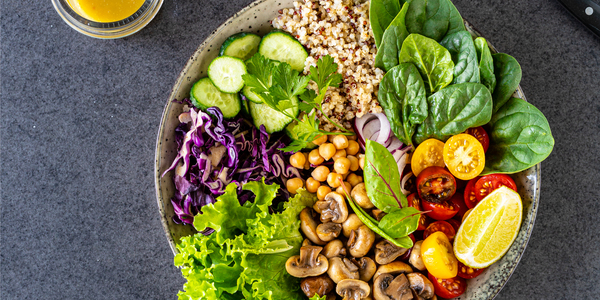[the_ad id=”6076″]
Active ageing is a concept that goes beyond just growing old gracefully. It means seniors actively contributing to various aspects of life, whether through work, social engagement, or physical activity. The dream of living a long, healthy life remains the desire of many, and the Blue Zone Diet offers insights into how to achieve this aspiration. Blue zones are regions around the world where people live significantly longer and healthier lives compared to the global average. These five regions include Okinawa, Japan; Sardinia, Italy; Nicoya Peninsula, Costa Rica; Ikaria, Greece; and Loma Linda, California. In this blog, we’ll delve into the Blue Zone Diet for active ageing, exploring the secrets of these remarkable regions and how you can apply them to your own life.
No Food After Sunset
A fundamental aspect of the Blue Zone Diet, particularly in Okinawa and other blue zones, is abstaining from food after sunset. This practice aligns with the body’s natural circadian rhythms, allowing for better digestion and improved sleep quality. Eating late in the evening can lead to weight gain and digestive discomfort. By giving your body a break from food during the night hours, you can promote better health and vitality as you age.
95% Plant-Based Diet
The cornerstone of the Blue Zone Diet is a predominantly plant-based diet. In Okinawa and other blue zones, this means a diet rich in green vegetables, beans, tofu, and nuts. Plant-based foods are abundant in essential nutrients, antioxidants, and fibre, all of which contribute to better health and longevity. These foods are low in saturated fats and promote heart health, which is crucial for active ageing.
Eat Only to 80% of Your Capacity
The Okinawans and residents of other blue zones have a common practice of “Hara hachi bu,” which means “Eat until you are 80% full.” This mindful eating practice helps control calorie intake and prevents overeating. By stopping before you feel completely full, you give your body a chance to digest food more efficiently, reducing the risk of weight gain and digestive issues associated with overconsumption.
Enjoy Wine in Moderation
Moderation is key when it comes to alcohol consumption in blue zones. In Okinawa, Sardinia, and other regions, it is common for people to enjoy 1-2 glasses of wine with friends and/or food around 5 pm. Red wine, in particular, is rich in antioxidants like resveratrol, which may have heart-protective benefits. However, it’s essential to remember that excessive alcohol consumption can have adverse health effects, so it’s crucial to adhere to moderation.
Socialize more
Social engagement is a vital component of active ageing, and blue zones emphasize the importance of strong community bonds. Okinawans, Sardinians, Costa Ricans, Greeks, and Californians often engage in social activities and spend time with loved ones regularly.
Grow Your Own Organic Food
Growing your own organic food, as seen in Sardinia and other blue zones, not only ensures a supply of fresh, nutrient-dense produce but also encourages physical activity and fosters a sense of purpose. This also ensures that you have a constant supply of fresh plant-based food that you intend to eat and share.
Conclusion
Incorporating the principles of the Blue Zone Diet, inspired by the remarkable residents of these five blue zones, into your life can be a valuable step toward active ageing and enjoying a longer, healthier life. As we age, it’s essential to prioritize our health and well-being. By adopting practices such as abstaining from food after sunset, following a predominantly plant-based diet, mindful eating, enjoying wine in moderation, and staying socially connected, we can significantly improve our chances of ageing actively and gracefully. So, why not take inspiration from these extraordinary communities and embark on your journey toward active ageing today? Your future self will thank you for it.

This article is written by, Dr. Subhasree Ray Kale
Corporate Dietician at Reliance Industries Limited
